Table Of Contents:
- Forex Trading – Legit Opportunity or Risky Scam? Everything You Need to Know:
- What Is Forex Trading? A Beginner’s Guide:
- Is Forex Trading Legitimate? Key Facts You Need to Know:
- Beware of Forex Scams – Red Flags and How to Spot Them:
- Protect Yourself – Tips for Safe and Secure Forex Trading:
- Latest Trends Shaping the Forex Trading Industry in 2025:
- Forex Trading Challenges in Today’s Market:
- How to Start Forex Trading the Right Way:
- The Verdict: Is Forex Trading Worth It?
- FAQs – Everything You Need to Know About Forex Trading:
- Q1. Is Forex trading legal in [Your Country]?
- Q2. How do I identify a trustworthy Forex broker?
- Q3. What are the risks of Forex trading?
- Q4. Can Forex trading become a full-time career?
- Q5. What is the best time to trade Forex?
- Q6. What tools can help me improve my Forex trading?
- Q7. Can I trade Forex with a small account?
- Q8. Is Forex trading a get-rich-quick venture?
Forex Trading – Legit Opportunity or Risky Scam? Everything You Need to Know:
Alright, let's dive into the world of Forex trading – a realm that's as exhilarating as it is perplexing. If you've ever found yourself pondering whether Forex trading is a legitimate opportunity or just another scam waiting to snare the unsuspecting, you're not alone. In recent years, the surge of financial influencers, especially on platforms like TikTok, has added layers of both intrigue and confusion to this topic.

Take, for instance, the rise of young personalities like Lucas Dimos, known as "The Blockchain Boy," who passionately share their trading journeys and strategies online. Their content often blurs the lines between genuine financial advice and promotional material, making it challenging for newcomers to discern the real deal from the hype.
Adding to the complexity, the global financial landscape is in constant flux. Geopolitical tensions, such as those involving the US and various trade policies, have profound impacts on currency markets, leading to increased volatility and uncertainty. Navigating these choppy waters requires not just skill but also a keen awareness of the broader economic and political currents at play.
Moreover, the rapid advancement of technology has introduced both opportunities and challenges. Artificial intelligence and machine learning are revolutionizing trading strategies, offering tools that can analyze vast datasets in real-time. However, this technological leap also means that traders must stay updated to remain competitive.
Given this backdrop, it's no wonder that many are skeptical about the legitimacy of Forex trading. The market's decentralized nature, combined with the proliferation of misinformation and the ever-evolving financial environment, can make it seem like a minefield.
In this article, we'll cut through the noise and provide you with clear, concise, and up-to-date information. Whether you're a curious beginner or a seasoned trader, our goal is to equip you with the knowledge to navigate the Forex market confidently and safely. Let's embark on this journey together and uncover the truth about Forex trading.
What Is Forex Trading? A Beginner’s Guide:
Alright, let's demystify the world of Forex trading together. Imagine you're planning a trip abroad. One of the first things you'd do is exchange your home currency for the local one, right? That's Forex in action on a personal level. Now, scale that up to a global marketplace where trillions of dollars are exchanged daily, and you've got the Forex market.

Overview of the Forex Market:
How Currency Trading Works?
Key Players in the Forex Market:
The Forex market is a diverse ecosystem with various participants:
- Commercial Banks: They facilitate currency transactions for clients and engage in speculative trading.
- Central Banks: Institutions like the Federal Reserve or the European Central Bank influence currency values through monetary policy and interventions.
- Hedge Funds and Investment Managers: They engage in large-scale speculative trades to capitalize on currency movements.
- Corporations: Businesses involved in international trade use Forex to hedge against currency risk.
- Retail Traders: Individuals like you and me, accessing the market through brokers, aiming to profit from currency fluctuations.
Why Trade Forex?
Forex trading offers several advantages:
- Liquidity: With such a vast market, you can enter and exit positions with ease.
- Flexibility: The 24-hour nature allows trading at almost any time that suits you.
- Leverage: Many brokers offer leverage, enabling you to control larger positions with a smaller amount of capital.
However, it's essential to approach Forex trading with a solid understanding and respect for the risks involved. The market's volatility can lead to significant gains, but equally, substantial losses.
In my early trading days, I recall staying up late, eyes glued to the screen, watching the markets move. The excitement was palpable, but so was the anxiety. Over time, I learned that success in Forex isn't about chasing every opportunity but about making informed decisions, managing risks, and continuously learning.
So, whether you're just dipping your toes into the Forex waters or looking to refine your trading strategies, remember: the journey is as important as the destination. Stay curious, stay cautious, and happy trading!
Is Forex Trading Legitimate? Key Facts You Need to Know:
Let's tackle a question that often pops up among traders: Is Forex trading legitimate? Short answer: Yes, it is. But, as with any financial endeavor, the devil is in the details. Let's break it down.

The Regulatory Landscape for Forex Trading:
Forex trading operates within a framework of regulations designed to protect traders and maintain market integrity. These regulations vary by country, reflecting different legal and financial systems. For instance, in the United States, the Commodity Futures Trading Commission (CFTC) and the National Futures Association (NFA) oversee Forex trading activities, enforcing strict standards to ensure transparency and fairness. Similarly, in the European Union, the Markets in Financial Instruments Directive II (MiFID II) provides a harmonized regulatory environment for investment services, including Forex trading. It's crucial for traders to be aware of the regulatory bodies governing Forex in their respective countries to ensure they are trading legally and safely.
Role of Central Banks and Major Financial Institutions:
Central banks and major financial institutions play a pivotal role in the Forex market. Central banks, such as the Federal Reserve in the U.S. or the European Central Bank, influence currency values through monetary policies, including interest rate adjustments and open market operations. For example, the Reserve Bank of India (RBI) has recently liberalized foreign exchange rules to promote cross-border trade, allowing Indian exporters to open accounts in any foreign currency overseas to settle trade transactions. Major financial institutions, including commercial banks and investment firms, facilitate large-scale currency transactions and provide liquidity to the market. Their activities can significantly impact currency supply and demand, influencing exchange rates.
Global Legality of Forex Trading – Country-by-Country Overview:
The legality of Forex trading varies across the globe, with each country setting its own rules and regulations. Here's a snapshot of how Forex trading is regulated in different regions:
- United States: Forex trading is legal and regulated by the CFTC and NFA, which impose stringent requirements on brokers and traders to protect market participants.
- India: Forex trading is legal, but traders must adhere to specific regulations set by the RBI and the Securities and Exchange Board of India (SEBI). The RBI has recently relaxed certain foreign exchange regulations to encourage the use of the rupee and other currencies in cross-border trade.
- South Africa: Forex trading is legal and regulated by the Financial Sector Conduct Authority (FSCA), which ensures that brokers operate fairly and transparently.
- Indonesia: Forex trading is legal but must comply with local Islamic laws. The Financial Services Authority (OJK) and the Commodity Futures Trading Regulatory Agency (BAPPEBTI) oversee financial service providers and brokers.
It's essential for traders to familiarize themselves with the specific regulations in their country to ensure compliance and protect themselves from potential fraud.
Conclusion:
Forex trading is a legitimate financial activity conducted globally. However, its legitimacy is underpinned by a complex web of regulations and the influential roles of central banks and financial institutions. As a trader, understanding the regulatory environment and the key players in the Forex market is crucial. This knowledge not only helps in making informed trading decisions but also ensures that you're operating within the legal frameworks of your country. So, before you dive into the world of Forex trading, take the time to research and understand the rules that apply to you. It's a step that can save you from potential pitfalls and enhance your trading experience.
Beware of Forex Scams – Red Flags and How to Spot Them:
Navigating the forex market can be as thrilling as it is daunting. While the potential for profit is real, so too is the risk of falling prey to scams. Let's delve into some common forex scams, real-life cases, and tactics scammers use, so you can trade with confidence and caution.

Top Forex Scams – Fake Brokers, Ponzi Schemes, and More:
The forex market, with its vast daily trading volume, unfortunately attracts unscrupulous individuals aiming to deceive traders. Here are some prevalent scams to watch out for:
- Fake Forex Brokers: These entities pose as legitimate brokers, often with polished websites and convincing marketing materials. They lure traders into opening accounts and depositing funds, only to disappear or deny withdrawal requests. Always verify a broker's credentials and regulatory status before investing.
- Ponzi Schemes: Scammers promise high returns with little to no risk, using funds from new investors to pay returns to earlier investors. This scheme collapses when new investments dry up, leaving many with significant losses.
- Signal-Selling Scams: Individuals or companies offer trading signals for a fee, claiming high success rates. In reality, these signals may be random or based on flawed analysis, leading to losses.
Real-Life Cases of Forex Fraud:
Understanding real-world instances of forex fraud can highlight the importance of due diligence:
- North Carolina Forex Fraud: In December 2024, a federal court ordered two North Carolina companies and their owners to pay over $5.3 million for operating a fraudulent forex scheme. They were permanently banned from trading in any CFTC-regulated markets.
- California Forex Fraud: In April 2024, a California man and his company were ordered to pay $9 million in restitution and penalties for defrauding investors through a forex trading scam.
Common Tactics Scammers Use to Exploit Traders:
Scammers often employ specific strategies to deceive traders:
- Guaranteed High Returns with Minimal Risk: Promises of substantial profits with little or no risk are red flags. All trading carries risk, and no legitimate broker can guarantee returns.
- Pressure to Invest Quickly: Scammers create a sense of urgency, pressuring individuals to invest without adequate time for research. Legitimate investment opportunities allow time for due diligence.
- Unsolicited Offers: Unexpected communications offering investment opportunities, especially from unknown entities, should be approached with skepticism. Always verify the authenticity of such offers.
Conclusion:
Staying informed and vigilant is your best defense against forex scams. Always conduct thorough research, verify the credentials of brokers and investment opportunities, and be wary of offers that seem too good to be true. By recognizing red flags and understanding common tactics used by scammers, you can protect yourself and trade more securely.
Protect Yourself – Tips for Safe and Secure Forex Trading:
Embarking on your forex trading journey is both exciting and challenging. To ensure your experience is safe and rewarding, it's crucial to take specific steps to protect yourself. Let's explore how to verify a forex broker's legitimacy, understand licensing and regulatory requirements, and implement essential safety tips for traders at all levels.
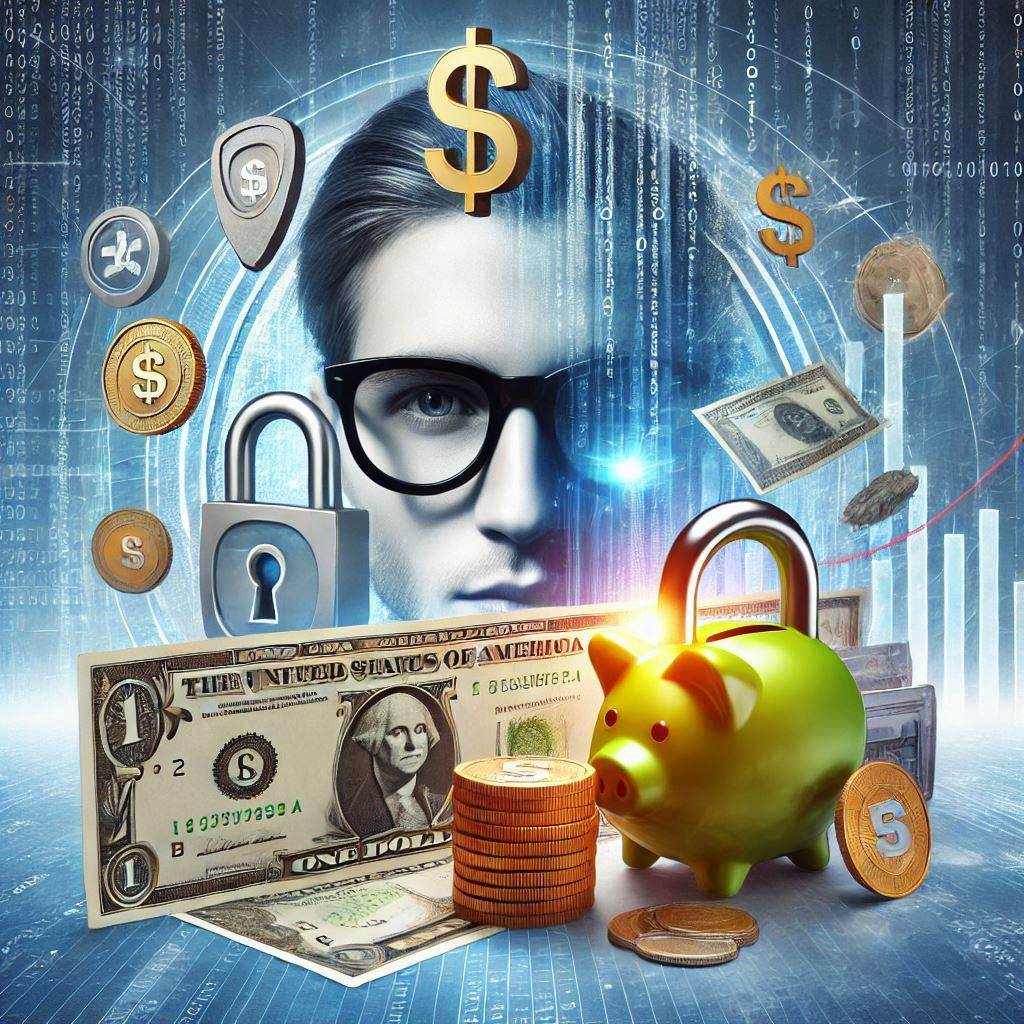
How to Verify a Forex Broker’s Legitimacy:
Before entrusting your funds to a broker, it's vital to confirm their authenticity:
- Regulatory Status: Ensure the broker is regulated by a reputable financial authority, such as the Financial Conduct Authority (FCA) in the UK, the Commodity Futures Trading Commission (CFTC) in the US, or the Australian Securities and Investments Commission (ASIC). You can verify their license on the regulator’s official website.
- Company Information: Research the broker's formal business name, incorporation details, and business history. A comprehensive online search, including their official website and online presence, can provide valuable insights.
- Customer Reviews: Look up online reviews and personal experiences of other traders. While even reputable brokers may have some negative feedback, consistent complaints about withdrawal issues or unethical practices are red flags.
Must-Know Licensing and Regulatory Requirements:
Understanding the regulatory landscape helps in choosing a trustworthy broker:
- Regulatory Authorities: Different countries have specific regulatory bodies overseeing forex trading. For instance, the FCA in the UK, the CFTC in the US, and ASIC in Australia. Ensure your broker is registered with the appropriate authority for your region.
- Compliance and Transparency: Regulated brokers must adhere to strict standards, including maintaining segregated accounts for client funds and undergoing regular audits. This compliance ensures transparency and protects traders from potential fraud.
Essential Safety Tips for Beginners and Experienced Traders:
Regardless of your experience level, these practices can enhance your trading security:
- Develop a Trading Plan: Before entering the market, decide on your trading methodology, including how you will make decisions to execute trades. Determine what information you will need to enter or exit a trade, such as monitoring economic fundamentals or relying on technical analysis.
- Use Stop-Loss Orders: Implementing stop-loss orders helps define your comfort zone, limiting potential losses by automatically closing positions at predetermined levels.
- Stay Informed: Keep abreast of market news and global events that could impact currency prices. Being informed allows you to make timely decisions and avoid unexpected market movements.
- Start with a Demo Account: If you're new to forex trading, consider starting with a demo account to practice trading strategies without risking real money. This approach helps build confidence and understanding of the market dynamics.
By diligently verifying your broker's legitimacy, understanding regulatory requirements, and following essential safety practices, you can navigate the forex market with greater confidence and security. Remember, informed and cautious trading is key to long-term success.
Latest Trends Shaping the Forex Trading Industry in 2025:
Alright, let's dive into the latest trends shaping the forex trading industry in 2025. It's an exciting time, with several key developments transforming how we approach the market.

AI and Automation – Revolutionizing Forex Trading Strategies:
Artificial intelligence (AI) and automation have become integral to forex trading, offering traders enhanced tools for data analysis and decision-making. AI platforms utilize machine learning to process vast amounts of market data, identifying patterns and trends that might be missed by the human eye. This technology enables the development of sophisticated trading strategies, allowing for more precise and timely trades. Automated trading systems execute trades at optimal moments, reducing the emotional biases that often affect human traders. However, it's essential to approach AI tools with a critical eye, as not all platforms deliver on their promises.
Blockchain and Cryptocurrency’s Role in Forex Markets:
Blockchain technology and cryptocurrencies are increasingly influencing the forex market. The transparency and security offered by blockchain are being leveraged to enhance transaction processes, making them more efficient and less susceptible to fraud. Cryptocurrencies, once considered fringe assets, are now mainstream, with traders incorporating them into their portfolios. This shift requires traders to stay informed about the unique behaviors and risks associated with digital currencies, as their volatility and regulatory landscapes differ significantly from traditional currencies.
The Rise of Social and Copy Trading Platforms:
Social and copy trading platforms have gained popularity, allowing traders to follow and replicate the strategies of experienced traders. These platforms foster a community environment where knowledge and strategies are shared, making forex trading more accessible to newcomers. By observing the trades of seasoned professionals, less experienced traders can learn effective strategies and potentially improve their trading performance. However, it's crucial to conduct due diligence, as blindly following others can lead to significant losses if the copied strategies are not well-suited to one's risk tolerance or market conditions.
In summary, 2025 is a transformative year for forex trading, with AI and automation enhancing trading strategies, blockchain and cryptocurrencies reshaping transaction processes, and social trading platforms democratizing access to market insights. Staying informed and adaptable is key to navigating these developments successfully.
Forex Trading Challenges in Today’s Market:
The forex market is often described as exciting, lucrative, and fast-paced. But let’s not sugarcoat it – trading in today’s forex market comes with its share of challenges. Whether you’re a seasoned trader or a newbie, understanding these hurdles is critical to managing risk and thriving in this competitive space.

Market Volatility and Global Economic Uncertainty:
Let’s face it: volatility is the lifeblood of the forex market. But recently, this volatility has been heightened by global economic uncertainties. Events like geopolitical tensions, shifting central bank policies, and even unexpected developments such as supply chain disruptions or health crises (remember the COVID-19 pandemic?) can send currency values into a tailspin.
- Real-Time Example: The U.S. dollar is a prime example. In 2025, it has faced extreme fluctuations due to “U.S. exceptionalism” policies, which prioritize American interests but impact global markets. For instance, tightening monetary policies by the Federal Reserve caused ripples worldwide, with emerging markets feeling the brunt.
- Impact on Traders: Volatility can create incredible profit opportunities, but it also poses significant risks, especially for those who don’t have a solid risk management strategy in place. For example, traders caught on the wrong side of a sudden dollar rally could face severe losses if their stop-loss levels aren’t set appropriately.
Practical Tip: Stay informed! Keep up with economic calendars, central bank announcements, and geopolitical developments. Tools like forex news apps and live economic indicators can help you react swiftly to market changes.
Stricter Regulations: What Traders Should Be Aware Of?
The regulatory environment in forex trading has become more stringent globally. While these regulations aim to create transparency and protect traders, they also impose stricter compliance measures that can be a hassle if you’re not prepared.
- Global Example: The Reserve Bank of India recently liberalized forex rules to promote cross-border trade. While this creates new opportunities for businesses and traders, navigating these regulatory changes can be confusing for beginners.
- Why It Matters: If you’re trading with an unregulated or offshore broker, you could be exposing yourself to risks like fraud or mismanagement. Countries like the U.S., U.K., and Australia have strict forex regulations in place, but many less-regulated regions still allow rogue brokers to operate.
Practical Tip: Always verify that your broker is regulated by a reputable authority, such as the FCA (Financial Conduct Authority) in the U.K., ASIC (Australian Securities and Investments Commission), or CFTC (Commodity Futures Trading Commission) in the U.S. Double-check their license number on official regulatory websites.
Managing Risk – High Leverage and Margin Trading Explained:
Let’s talk about leverage. It’s like a double-edged sword – while it can amplify your profits, it can also lead to devastating losses. For instance, leverage ratios of 1:500 might sound attractive, but they also mean that small market movements could wipe out your capital.
- Real-Life Scenario: Imagine a trader using 1:500 leverage on a $1,000 account. A movement of just 0.2% against their position would result in a complete loss of their margin. This risk is why many traders fail to sustain their accounts in the long run.
- The 2025 Landscape: As AI and machine learning become integral to forex, traders now have access to tools that analyze risks in real-time. These platforms can suggest optimal leverage ratios or warn you about excessive margin usage.
Practical Tip:
- Start small. Use leverage cautiously, especially if you’re new. Many successful traders recommend sticking to ratios like 1:10 or even lower when starting out.
- Always calculate your potential loss before entering a trade, and never risk more than 1-2% of your total capital on a single position.
- Use stop-loss orders religiously to limit potential losses.
Additional Emerging Challenges in 2025:
- Cybersecurity Threats: As forex trading becomes increasingly digital, the risk of cyberattacks and phishing scams has grown. Make sure to use strong passwords, enable two-factor authentication (2FA), and avoid logging into trading platforms on public Wi-Fi.
- Information Overload: With endless forex news and analysis sources available, it’s easy to feel overwhelmed. Rely on trusted platforms and avoid jumping on every market rumor. Instead, create a trading plan and stick to it.
- Overtrading Temptations: The 24/5 nature of forex markets can tempt traders to overtrade, leading to emotional decision-making and burnout. Remember, patience often pays off more than constant activity.
Final Thoughts:
Trading forex in today’s market isn’t for the faint-hearted, but understanding the challenges – and preparing for them – can set you apart from the rest. Stay informed, prioritize risk management, and keep refining your strategies. Think of these challenges as stepping stones that, when navigated wisely, lead to growth and long-term success.
Now, go ahead and tackle the market with confidence. After all, the biggest challenge is often taking that first step and staying consistent.
How to Start Forex Trading the Right Way:
Hey there! So, you're ready to dive into the world of forex trading? That's fantastic! Let's walk through some essential steps to ensure you start on the right foot.
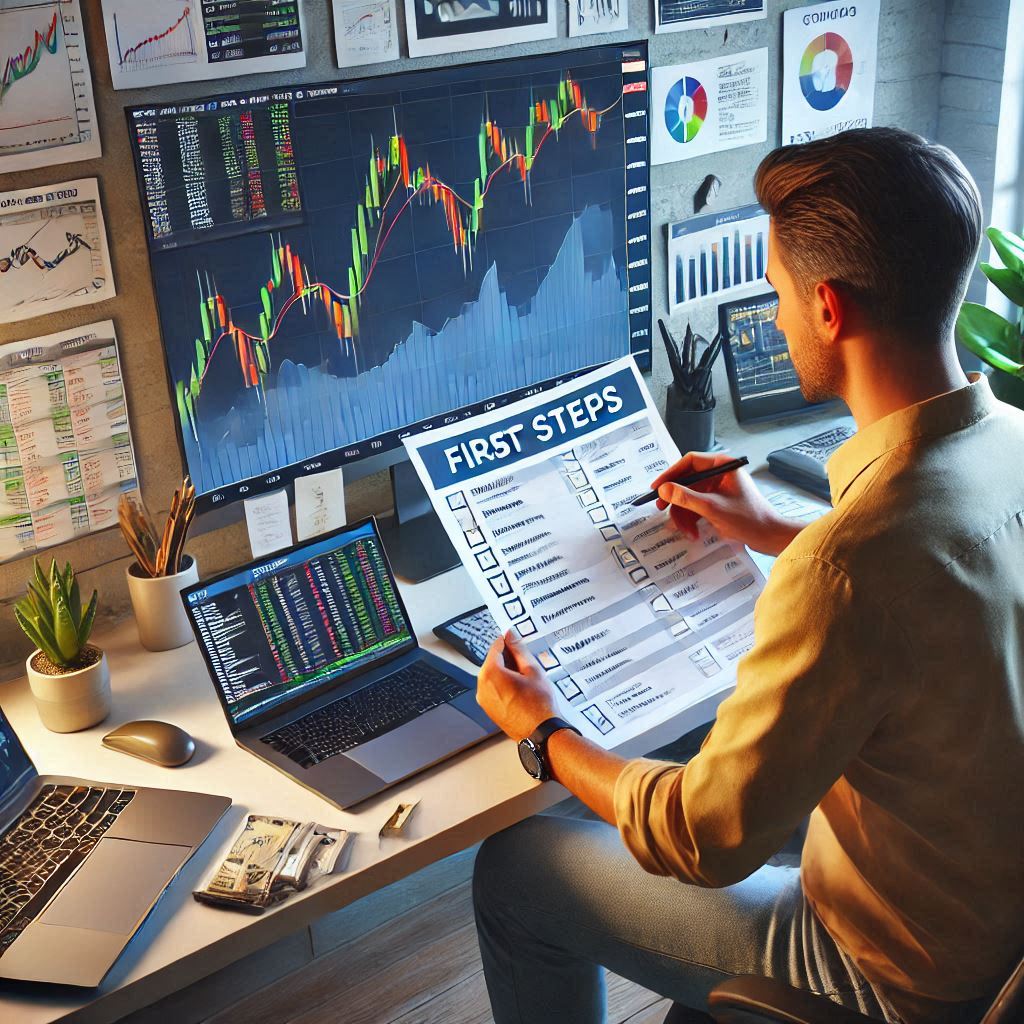
Choosing a Reputable Forex Broker:
First things first, selecting the right broker is crucial. You want someone trustworthy and reliable. Here's what to consider:
- Regulatory Compliance: Ensure your broker is regulated by recognized authorities. In the U.S., look for registration with the Commodity Futures Trading Commission (CFTC) and membership in the National Futures Association (NFA). This oversight helps protect you from fraud and malpractice.
- Trading Costs: Brokers earn through spreads (the difference between buying and selling prices) or commissions. Compare these costs across brokers to find competitive rates that suit your trading style.
- Account Features: Look into leverage options, minimum deposit requirements, and available currency pairs. Choose a broker whose offerings align with your trading goals and risk tolerance.
- Customer Service: Responsive support is vital, especially when you're starting out. Test their customer service to ensure they're accessible and helpful when you need them.
Building a Solid Trading Strategy:
Now, let's talk strategy. A well-defined plan keeps your emotions in check and guides your trading decisions. Consider the following:
- Define Your Goals: Are you trading for income, growth, or a bit of both? Clear objectives will shape your approach and time commitment.
- Risk Management: Decide how much capital you're willing to risk per trade. A common guideline is not to risk more than 1-2% of your trading capital on a single trade.
- Research and Analysis: Determine whether you'll rely on technical analysis (charts and indicators), fundamental analysis (economic news and data), or a combination of both. This will inform your decision-making process.
- Record Keeping: Maintain a trading journal to document your trades, strategies, and outcomes. Reviewing this regularly helps identify what's working and where you can improve.
Tools and Resources to Enhance Your Trading Skills:
Equip yourself with the right tools to stay ahead:
- Educational Resources: Utilize online courses, webinars, and tutorials to deepen your understanding of forex trading. Continuous learning is key to staying competitive.
- Demo Accounts: Practice your strategies in a risk-free environment using demo accounts offered by most brokers. This helps you gain confidence before committing real money.
- Trading Platforms: Familiarize yourself with the trading platform provided by your broker. Ensure it offers the necessary tools, indicators, and user-friendly features to execute your strategies effectively.
Embarking on your forex trading journey is exciting and, with the right preparation, can be rewarding. Stay informed, practice diligently, and always be mindful of the risks involved. Happy trading!
The Verdict: Is Forex Trading Worth It?
When it comes to forex trading, the million-dollar question is: is it really worth your time and investment? The answer isn’t black and white – it depends on your goals, mindset, and how much you’re willing to invest in your own education. Let’s break it down.

Weighing the Pros and Cons of Forex Trading
Forex trading offers a unique set of benefits that make it appealing, but it also has its share of challenges.
The Pros of Forex Trading:
- Accessibility and Flexibility: Forex markets run 24/5, giving you the freedom to trade on your schedule. Whether you’re a night owl or an early riser, you can find a time that fits your routine.
- Low Entry Costs: Most brokers offer zero or low commissions, with fees primarily coming from the spread. This makes forex trading more cost-efficient compared to other investment markets like stocks.
- High Liquidity: The forex market moves more than $7.5 trillion daily, making it the most liquid market in the world. This means you can buy or sell major currencies quickly, often without worrying about price slippage.
The Cons of Forex Trading:
- Unpredictable Volatility: Currencies are sensitive to global events, from interest rate changes to political instability. This volatility can lead to both quick profits and unexpected losses.
- The Risks of Leverage: Leverage can be a double-edged sword. While it magnifies your potential gains, it also exposes you to larger losses. Without proper risk management, even a small market shift can wipe out your account.
The Importance of Education and Continuous Learning
Jumping into forex without preparation is like jumping into deep water without knowing how to swim – you’re bound to sink. A solid education is your life raft.
- Learn the Fundamentals: Understand how the forex market operates, what influences currency prices, and how to analyze market trends.
- Practice Makes Perfect: Start with demo accounts to test strategies in a risk-free environment before committing real money.
- Stay Updated: Global events and economic shifts can impact the forex market overnight. Follow financial news and continuously refine your strategies.
Pro tip: Never stop learning. Markets evolve, and so should you.
Final Thoughts on Trading Responsibly and Successfully
Forex trading isn’t a get-rich-quick scheme; it’s a discipline that rewards patience, persistence, and preparation. Successful traders treat forex like a business: they have a plan, manage their risks, and constantly adapt to changing market conditions.
If you’re ready to put in the effort to educate yourself, develop a strategy, and approach trading responsibly, forex can be a rewarding venture. But if you’re looking for overnight success, it’s better to steer clear.
At the end of the day, forex trading is what you make of it. With the right mindset and tools, it can be a legitimate way to build wealth.
FAQs – Everything You Need to Know About Forex Trading:
Alright, let’s dive into the most frequently asked questions surrounding Forex trading. Whether you're just starting or you're looking for clarity on certain aspects, this section will give you a solid understanding. Ready? Let’s go!
Q1. Is Forex trading legal in [Your Country]?
One of the most common questions new traders ask is about the legality of Forex trading. The good news is that Forex trading is legal in most countries. However, the regulations surrounding it can vary from one country to another. Some countries have strict rules in place to protect consumers and prevent financial fraud, while others have a more relaxed approach. It’s important to check your country’s regulations and ensure that you’re trading within legal boundaries. Countries like the US, the UK, Australia, and Japan have robust regulatory systems in place, while some regions have more lenient laws, so doing your due diligence here is crucial.
Q2. How do I identify a trustworthy Forex broker?
When it comes to Forex trading, choosing the right broker is one of the most important decisions you'll make. A reliable and trustworthy broker will have proper licenses from regulatory bodies like the FCA (UK), NFA (US), or ASIC (Australia). Check for transparency in their operations, the security of your funds, and clear fees. You also want to ensure that the broker has a good reputation in the industry. Avoid brokers offering unrealistically high returns, as these could be red flags. Customer reviews, third-party comparison websites, and regulatory certifications can also help you make an informed choice.
Q3. What are the risks of Forex trading?
Forex trading, like any form of trading or investing, carries risks. The market can be highly volatile, with rapid price movements that could result in both profits and losses. Leverage, while it can amplify profits, can also amplify losses, making it a double-edged sword. Currency values are influenced by a variety of factors, including geopolitical events, economic data, and central bank policies, which can make predicting movements tricky. It’s essential to understand the risks, use proper risk management strategies like stop-loss orders, and never trade with money you can’t afford to lose.
Q4. Can Forex trading become a full-time career?
Yes, it’s entirely possible to turn Forex trading into a full-time career, but it requires dedication, discipline, and a solid trading strategy. Many traders start as part-timers and eventually make the switch to full-time, but it’s not an easy transition. Successful full-time traders typically have a deep understanding of the market, a proven track record, and strong emotional control. It can take years of practice, continuous learning, and sometimes a few setbacks to reach a level where you can confidently rely on trading as your primary source of income. So, if you're thinking of going full-time, make sure you're ready for the challenge!
Q5. What is the best time to trade Forex?
Timing plays a huge role in Forex trading. The Forex market operates 24 hours a day, five days a week, across different time zones. The best time to trade depends on the currency pairs you're focusing on and the volatility you’re aiming for. The most liquid and volatile times are during market overlaps, like when the London and New York sessions coincide. Trading during these times can present more opportunities but also more risks, so it's important to be prepared. If you're trading less liquid pairs, then trading during specific regional hours may be more effective.
Q6. What tools can help me improve my Forex trading?
To succeed in Forex trading, you'll need more than just basic knowledge. There are a variety of tools that can help you make better decisions. For technical analysis, platforms like MetaTrader 4 or 5 offer a wide range of indicators, charting tools, and automated trading systems. For fundamental analysis, financial news services like Bloomberg and Reuters will keep you updated on global events that can impact the market. Many successful traders also rely on trading journals to track their trades, emotions, and strategies. Additionally, risk management tools, such as stop-loss orders and margin calculators, are crucial to protect your capital.
Q7. Can I trade Forex with a small account?
Yes, it’s absolutely possible to start trading Forex with a small account. Many brokers offer micro and mini accounts that allow you to trade with lower amounts of capital. However, be aware that trading with a small account means you'll be working with limited leverage, and small price movements can have a larger impact on your account balance. It's important to use proper risk management and avoid over-leveraging your position, especially in the early stages.
Q8. Is Forex trading a get-rich-quick venture?
Short answer: No. Forex trading is not a get-rich-quick scheme, despite what some ads and social media posts might promise. While there is potential for significant profits, it requires time, effort, and experience to become consistently profitable. Many traders experience losses in the beginning, and even experienced traders face challenges due to market unpredictability. Forex trading should be approached with the mindset of a long-term endeavor, not a quick cash grab.
With these answers, you should have a well-rounded understanding of the most pressing questions in Forex trading. Just remember: take your time, do your research, and approach trading with a sense of patience and discipline!































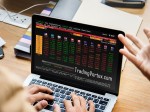


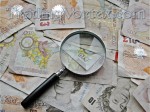
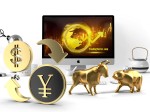
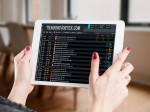
 TradingVortex.com® 2019 © All Rights Reserved.
TradingVortex.com® 2019 © All Rights Reserved.